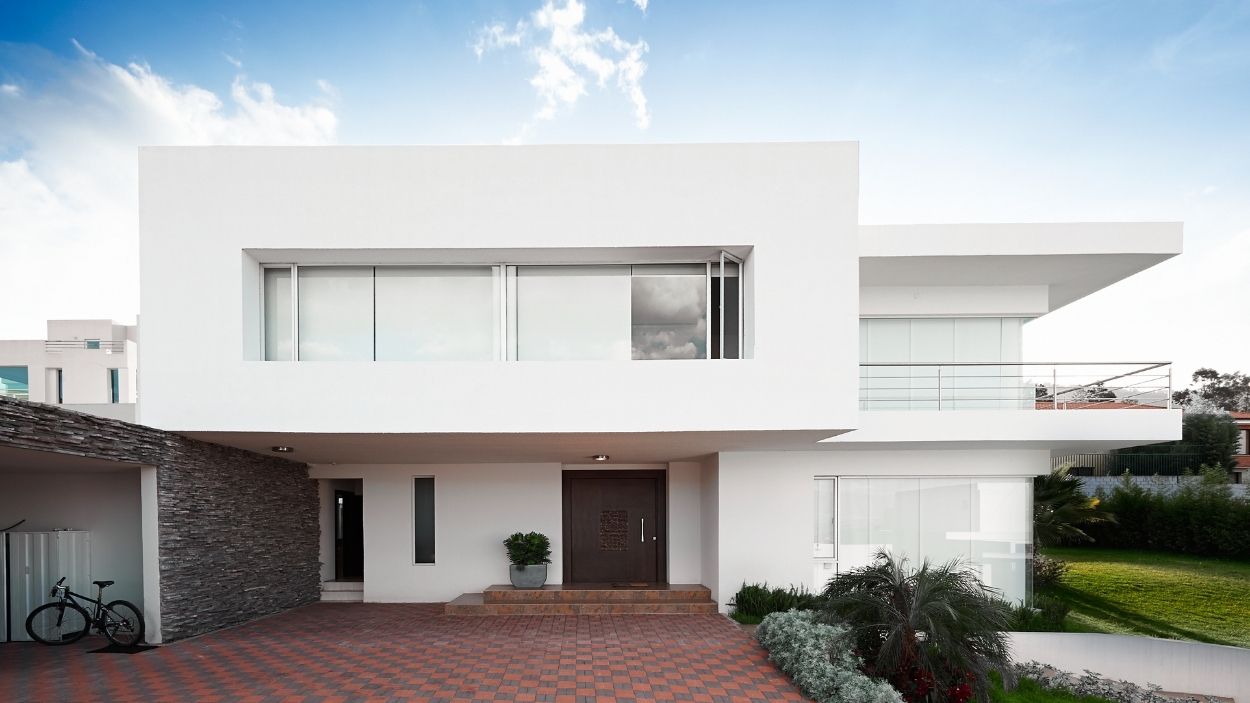How to Save Money for a House?
A dream house seems like just that these days: a dream.
With real estate prices going up, wages staying the same, and the number of millennials who own their own homes at an all-time low, owning your own home might seem like an impossible goal, but it is possible with the right plan.
How to Save Money for a House?
To save for a house, you should stop spending money on things you don’t need, make more money, use a savings account with a high interest rate, or start investing. If you need a mortgage, it’s important to keep your credit score in good shape.
Spend Less On Things You Don’t Need.
Saving for a down payment on a house, no matter how small, will require sacrifice. This is a lot of cash. The best way to save money is the easiest way to cut back. And that means giving up small purchases that have become a habit but probably don’t add much to your life. Cut back on things like eating out, buying fancy coffee, and buying things you don’t need right away. People who start saving for the first time are always surprised by how much they can save each month. This is because they don’t really know how much they spend on small things each month. And over the course of a year, that will almost certainly save you thousands of dollars.
Pay less rent.
Rent is usually one of the biggest expenses each month, so if you can find a way to save there, it will be easier for you to buy a home. Can you move into a cheaper, smaller place? Share a room? At first, it will be hard to give up space and privacy, but your new place is just a stopover, a halfway house where you don’t have to live with criminals! (We hope.)
Most of your daily business should be done with cash.
When people pay with cash instead of a card, they tend to be more aware of how much they are spending. If you decide to pay for your everyday expenses with cash, you’ll be more careful and, in the long run, more frugal with your money.
Put money into an account for saving or investing.
Put your newly saved money in a savings account or a balanced investment portfolio to get the most out of it. A robo-advisor can help you invest even if you don’t know much about it because it does most of the work for you. If you decide to invest or save a certain amount of your paycheck every month, your savings will grow steadily without you having to do anything.
Have a fund for bad times.
You don’t want to have to use the money set aside for your down payment as soon as you have a financial problem. So, before you even start saving, make sure you have three to six months’ worth of expenses saved up in a separate “rainy day fund” so that expensive surprises don’t throw off your plans to buy a home.
Maintain a good credit score.
The better your credit score, the better the interest rates on any loans you apply for, which will save you money in the long run.
How to save money while renting to buy a house?
Even though you’re working hard to save money, you still need a place to live. This probably means you still rent but are getting closer to buying a home. Even if you pay rent every month, you can still save up for a down payment.
Live in a place that none of your cool friends would ever go:
Google “hottest neighborhoods” for your city, and then don’t move to any of those places. You’ll save money on rent and be less likely to spend money at the trendy bars, restaurants, and shops in these areas.
Cut out subscriptions:
Do you really need to have to pay for an online subscription ?
Let’s be honest:
Can you use the Netflix password of your friend’s ex-ex-girlfriend boyfriend’s sister’s instead of getting your own?
Find a roommate or rent out a spare room on Airbnb:
Just talk to your landlord about it first. Make a down payment fund that can’t be touched. If you put your down payment fund in the same account as your rent and bills, no matter how hard you try to be disciplined, you will see a lot more money going out than coming in. Sign up for a savings account or an investment account where you’ll put away a set amount of money every month plus whatever else you can afford, and then just… forget about it. They deny it exists at all.
How to save enough in a year to buy a house.
If you can’t stand to rent another minute but don’t have enough money saved for a down payment, you’ll have to tighten your belt a bit more.
If you can, get rid of your car.
Can you carpool, ride a bike, or take the bus instead? Your savings will grow by a huge amount if you sell your car and stop paying for insurance and maintenance.
Get a side-hustle:
Whether you do freelance work, drive for Uber or Lyft, or open an Etsy shop to sell the dog vests you crochet, if you make more money, you can save more.
Don’t take a vacation:
Your “friend’s” Instagram post from Crete is a siren call, but keep your eyes on the prize. You can’t live in Crete. And think about how many happy Facebook posts you can make from your new home.
Join your parents’ household:
Not good. We get it. But if you know exactly when you want to move out, this is probably the fastest way to buy a home. Most likely, your rent is your biggest single cost. If you get rid of it, you’ll be on the fast track to owning a home.
Choose investments with a high return and low risk:
For short-term goals, it’s best to put your money in investments with a high return and low risk, since you’ll be less affected by changes in the market. Bonds might be the best choice here. Bonds are usually less risky than stocks, and they can really help you get the most out of your short-term returns.
How much do you need to save for a home?
Not only do you need to know how to save, but you also need to know how much to save. At this point, it’s important to be realistic about your budget and goals, as well as to learn as much as you can about mortgages, maintenance costs, and down payment options.
It can be helpful to figure out how much money you need for a house and when you want to buy it. Then work backwards to figure out how much you will need to save each month to reach your goal.
Don’t forget about fees and maintenance costs.
You don’t just save up for a down payment when you buy a house. If you work with a real estate agent, you’ll also have to pay their fees. If you buy title insurance and homeowner’s insurance, you’ll also have to pay insurance fees. Before you sign anything, you should also have the house inspected so that you don’t have to deal with any unpleasant surprises later on. This will also cost you.
Keep in mind your debt-to-income ratio.
When looking for mortgages, it’s also important to know how much debt you can handle. Your debt-to-income ratio (DTI) should usually be three times your income before taxes. This means that your house shouldn’t cost more than three times your gross annual income. Also, you shouldn’t pay more than 30% of your monthly income before taxes on your debts (monthly mortgage payment, credit card payments, student loans, etc). If you go higher than that, it may be hard for you to make your monthly debt payments and harder for you to get a good mortgage.
The most effective ways to save money for a house
You shouldn’t keep the money you’re saving for a down payment in your checking account. Depending on when you need the money and how quickly you need it, you should either put it in a high-return savings account or a low-risk investment portfolio.
Account for short-term savings
Choose a savings account for your down payment fund if you want to get to the money quickly (say, in one to five years). You might be better off saving your money than investing it because your savings are less likely to change in the short term. Most of the benefits of a savings account come from how easy it is to use. You can set up automatic monthly deposits and easily get your money out when you need it. The problem is that most savings accounts don’t give back much money. To get the most out of your savings, look for products that say “high-yield” or invest the money in a savings investment product where the returns are usually higher.
Investments are made with the long term in mind.
If you’re willing to wait as long as possible and save money before buying a house, you might be better off investing than saving. The stock market and many other investments go up and down over time, but studies show that they have (significantly) grown over time in the past. People who want to save money for a house they won’t buy for a while can do so by investing. You’ll be able to ride out fluctuations in the stock market and other investments. Investing is more risky than saving, but that’s obvious. There are no guarantees when it comes to investing, but in general, the returns are higher. Whether you decide to save or invest, start as soon as possible and then sit back and watch compound interest work its magic.
Putting away money for a deposit
Saving up for the down payment is, of course, the biggest financial problem to solve. With a bigger down payment, you can be sure that your monthly mortgage payments won’t leave you short on cash and that you’ll get good loan rates. So it’s best to save as much money as you can.
Try to save 20% of the price of what you buy.
If you have saved up at least 20% of the house’s asking price, you may not need to buy mortgage insurance and may be able to get better rates from lenders. It can also make people more likely to accept your bid. Another good thing about paying at least 20%? You’ll be better protected if the price of your home goes down and your mortgage balance won’t go above the value of your home.
Invest in a diversified portfolio that has low risk.
If you want to save up for a 20% down payment, it will take a little longer than if you only want to save up for a 5% one. That means you’ll want to put your saved money to good use. You could put it in a savings account, but if you want your money to grow faster than the rate of inflation, we suggest investing it in stocks, bonds, and real estate. This way, if one part of the market goes down, your whole portfolio won’t suffer. Watch out for fees that are too high. Some investment companies have a bad reputation for charging high fees that eat up all your gains.
Also Read


